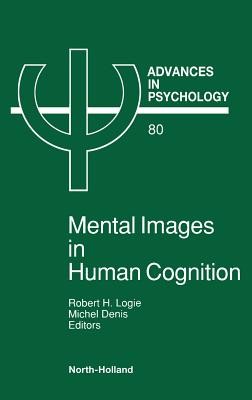
- We will send in 10–14 business days.
- Publisher: North-Holland
- ISBN-10: 0444888942
- ISBN-13: 9780444888945
- Format: 15.6 x 23.4 x 2.5 cm, kieti viršeliai
- Language: English
- SAVE -10% with code: EXTRA
Mental Images in Human Cognition (e-book) (used book) | bookbook.eu
Reviews
Description
This book represents the research efforts of individuals whose scientific expertise lies in reflection on what Sartre described as reflective acts. Theory in the cognitive psychology of mental imagery, endeavors not only being able to describe the contents and nature of mental imagery, but also being able to understand the underlying functional cognition. Psychologists need not solely rely on the techniques of introspection, and the last two decades have seen highly creative developments in techniques for eliciting behavioural data to be complemented by introspective reports.
This level of sophistication has provided singular insights into the relationship between imagery and other consequential and universal aspects of human cognition: perception, memory, verbal processes and problem solving. The recognition that imagery, despite its ubiquitous nature, differs between individuals both in prevalence and in kind, and the dramatic rise in cognitive science has provided the additional potential for integrating our understanding of cognitive function with our understanding of neuroanatomy and of computer science. All of these relationships, developments and issues are dealt with in detail in this book, by some of the most distinguished authors in imagery research, working at present in both Europe and the USA.
EXTRA 10 % discount with code: EXTRA
The promotion ends in 21d.14:21:24
The discount code is valid when purchasing from 10 €. Discounts do not stack.
- Publisher: North-Holland
- ISBN-10: 0444888942
- ISBN-13: 9780444888945
- Format: 15.6 x 23.4 x 2.5 cm, kieti viršeliai
- Language: English English
This book represents the research efforts of individuals whose scientific expertise lies in reflection on what Sartre described as reflective acts. Theory in the cognitive psychology of mental imagery, endeavors not only being able to describe the contents and nature of mental imagery, but also being able to understand the underlying functional cognition. Psychologists need not solely rely on the techniques of introspection, and the last two decades have seen highly creative developments in techniques for eliciting behavioural data to be complemented by introspective reports.
This level of sophistication has provided singular insights into the relationship between imagery and other consequential and universal aspects of human cognition: perception, memory, verbal processes and problem solving. The recognition that imagery, despite its ubiquitous nature, differs between individuals both in prevalence and in kind, and the dramatic rise in cognitive science has provided the additional potential for integrating our understanding of cognitive function with our understanding of neuroanatomy and of computer science. All of these relationships, developments and issues are dealt with in detail in this book, by some of the most distinguished authors in imagery research, working at present in both Europe and the USA.


Reviews